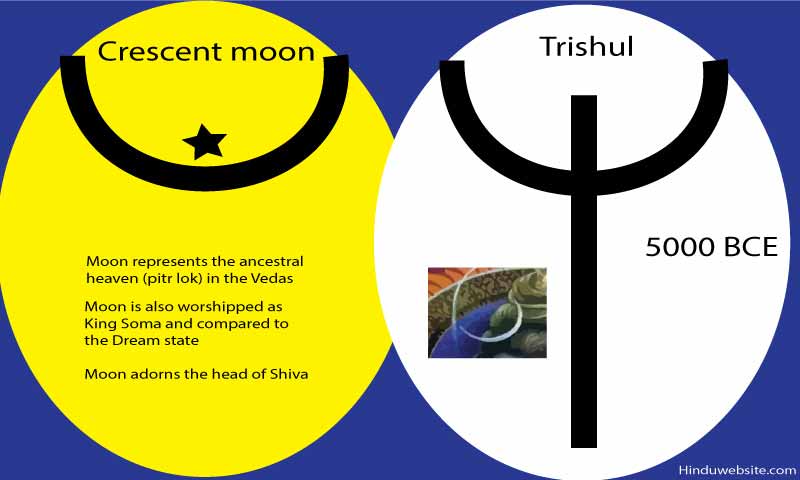
Is Islam a Copy of Hinduism?

Hinduism and Islam may have some similarities and difference with regard to the nature of God, worship, heaven and hell and other aspects. These have been explained in detail in one of my earlier articles.
However, it is wrong to assume that Islam is a copy of Hinduism or derived from it.
It is preposterous to assume that Prophet Mohammad had any connection with Vishnu or an incarnation of him.
According to Hindu Puranas, Kalki, the next incarnation of Lord Vishnu will appear only at the end of the current time cycle, and his incarnation will herald the end of the world.
Hinduism is an ancient tradition formed out of many diverse traditions that originated in India, whereas Islam is comparatively a recent religion,
Historically, Hinduism is at least 3000 years older than Islam and by the time Islam was founded, it was already a well established religion.
Indian ships sailed regularly to the African coast and the Arabian Peninsula from the Vedic times. But the contact was mainly trade related.
We have no evidence that Prophet Mohammad had any knowledge of the religions that were practiced in India during his time.
He was familiar with Judaism and Christianity and probably Zoroastrianism, but not with the faiths of the east.
Some people do try to suggest that the advent of Islam is foretold in some Puranas, but any connection between the two is highly questionable.
It is true that there is an Upanishad which goes by the name Allohpanishad. But it is of recent origin and has no connection whatsoever with the original Upanishads found in the four Vedas.
Islam is an uncompromising religion, which does not acknowledge any faith other than what is contained in the Quran.
Hinduism comparatively is a more tolerant religion. However, this was not the case with the people who practiced various Hindu traditions during ancient and medieval periods.
Those were the time when people in the subcontient used to believe that any contact with foreigners was inauspicious and crossing the oceans was sinful.
Those who practiced the native faiths in India during these times might not have been aggressive about their religious beliefs but as far as possible they preferred to avoid contact with those who practiced different faith or came from distant lands.
There was some tolerance for Buddhism, Jainism and Sikhism, but very little for either Islam or Christianity.
They might have not shown any animosity towards these faiths for fear of retribution, but they kept their beliefs and practices to themselves in matters of faith.
Religious knowledge was also imparted selectively. Hinduism discourages dissemination of religious knowledge to people who hold different beliefs or do not show any inclination to receive it.
Therefore Indian religions and ascetic traditions, with the exception of Buddhism, remained largely unknown outside the Indian subcontinent.
Suggestions for Further Reading
- Om, Aum, Pranava or Nada in Mantra and Yoga Traditions
- Brahmacharya or Celibacy in Hinduism
- Atheism and Materialism in Ancient India
- Solving the Hindu Caste System
- How To Choose Your Spiritual Guru?
- Creation in Hinduism As a Transformative Evolutionary Process
- Wealth and Duty in Hinduism
- Do You Have Any Plans For Your Rebirth or Reincarnation?
- Understanding Death and Impermanence
- Lessons from the Dance of Kali, the Mother Nature
- Letting your God live in You - The True Essence of the Hindu Way of Life
- prajnanam brahma - Brahman is Intelligence
- Maslow's Hierarchy Of Needs From The Perspective Of Hinduism
- The Defintion and Concept of Maya in Hinduism
- The Meaning of Nirvana
- Self-knowledge, Difficulties in Knowing Yourself
- Hinduism - Sex and Gurus
- The Construction of Hinduism
- The Meaning and Significance of Heart in Hinduism
- The Origin and Significance of the Epic Mahabharata
- The True Meaning of Prakriti in Hinduism
- Three Myths about Hinduism
- What is Your Notion of God?
- Why Hinduism is a Preferred Choice for Educated Hindus
- Essays On Dharma
- Esoteric Mystic Hinduism
- Introduction to Hinduism
- Hindu Way of Life
- Essays On Karma
- Hindu Rites and Rituals
- The Origin of The Sanskrit Language
- Symbolism in Hinduism
- Essays on The Upanishads
- Concepts of Hinduism
- Essays on Atman
- Hindu Festivals
- Spiritual Practice
- Right Living
- Yoga of Sorrow
- Happiness
- Mental Health
- Concepts of Buddhism
- General Essays